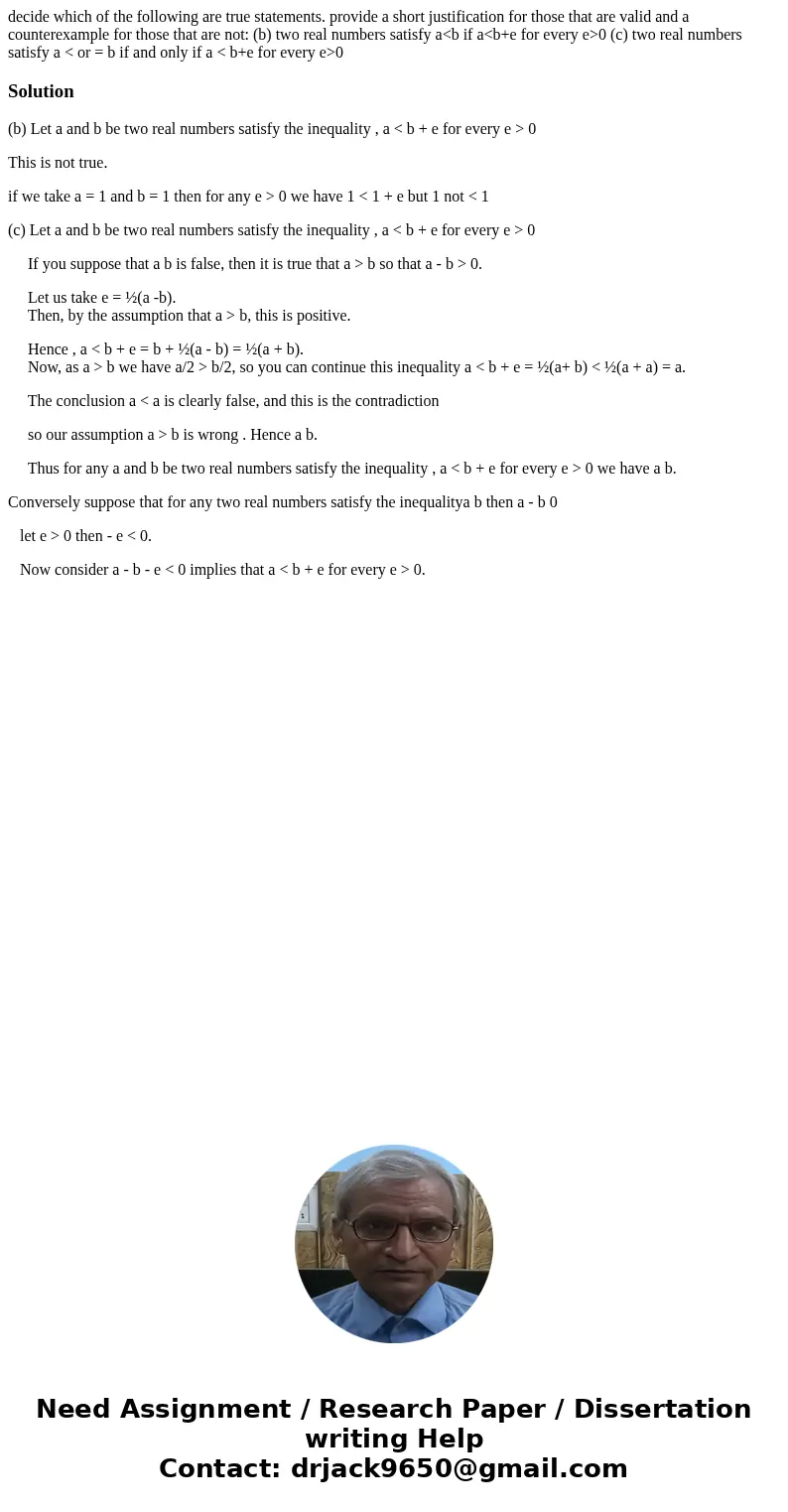decide which of the following are true statements provide a
decide which of the following are true statements. provide a short justification for those that are valid and a counterexample for those that are not: (b) two real numbers satisfy a<b if a<b+e for every e>0 (c) two real numbers satisfy a < or = b if and only if a < b+e for every e>0
Solution
(b) Let a and b be two real numbers satisfy the inequality , a < b + e for every e > 0
This is not true.
if we take a = 1 and b = 1 then for any e > 0 we have 1 < 1 + e but 1 not < 1
(c) Let a and b be two real numbers satisfy the inequality , a < b + e for every e > 0
If you suppose that a b is false, then it is true that a > b so that a - b > 0.
Let us take e = ½(a -b).
Then, by the assumption that a > b, this is positive.
Hence , a < b + e = b + ½(a - b) = ½(a + b).
Now, as a > b we have a/2 > b/2, so you can continue this inequality a < b + e = ½(a+ b) < ½(a + a) = a.
The conclusion a < a is clearly false, and this is the contradiction
so our assumption a > b is wrong . Hence a b.
Thus for any a and b be two real numbers satisfy the inequality , a < b + e for every e > 0 we have a b.
Conversely suppose that for any two real numbers satisfy the inequalitya b then a - b 0
let e > 0 then - e < 0.
Now consider a - b - e < 0 implies that a < b + e for every e > 0.

 Homework Sourse
Homework Sourse